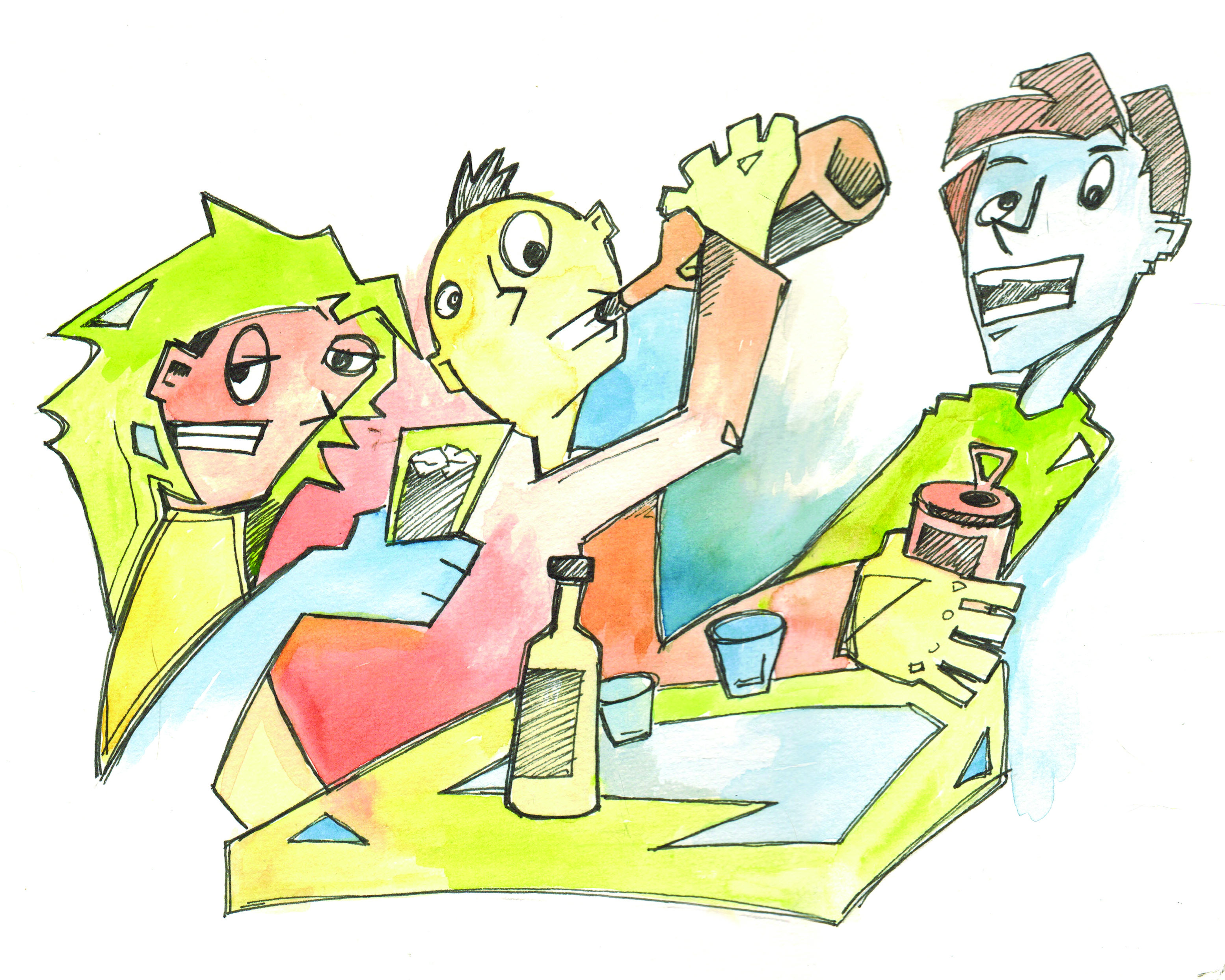Drinking is an age-old custom. Archaeologists have found evidence of fermented alcoholic beverages’ existence in China as early as 9,000 years ago. Intoxicating liquor runs deep into the roots of human civilization, and it is now ubiquitous, especially in Canada. Many of our greatest thinkers have also been great winos, and it would not be unfair to say, to some extent, that booze is what brought us to where we are today.
Yet there are those out there who spurn the bottle on ethical or health-related grounds, and believe we, as a society, should do the same. They are partly right. Alcohol abuse is a major public health issue. Eight per cent of all deaths and seven per cent of hospital stays in 2002 could be attributed to alcohol, and consumption rates have been rising for some time.
Given all this, why do we still allow drinking at all? I’d like to outline a positive view of the reasons we drink, one that is hopefully more sophisticated than “because I like it” and that can stand up against the robust criticism of our modern-day prohibitionists. I believe that when used responsibly—or at least when used irresponsibly responsibly— alcohol can be a force for good.
Alcohol is, of course, in wide use as a social lubricant. It smoothes over minor differences between people and knocks down small barriers to social interaction. It fosters a sense of geniality that allows people with nothing in common to bond with each other. It allows people to open up in ways they otherwise would not. This makes it particularly important as a crutch for the social development of shy, quiet people.
Drinking is also an important rite of passage. For many of us, that first time (most likely underage) with a bottle is a life-changing experience. Alcohol marks you as an adult in a powerful way, but it also trains you in adult habits. You learn to discover and master your limits and hone your discipline and self-control. Those of us who are unable to let a drink sit on the table for any length of time must learn to imbibe more slowly if we wish to function in adult company. This frantic sipping is a character flaw, whether the drink is rum or Coke, but only a truly bad night of drinking booze will break you of the habit.
Perhaps most importantly, alcohol is the only mind-altering recreational drug that is both legal and in wide use. It has long been associated with the activities of very intelligent people, from Plato with his symposia, to G. E. M. Anscombe, who would only teach her advanced students over a good bottle of claret. The mind-altering potential of alcohol means that you can learn a great deal from it.
We tend to go about our business each day with habitual and unnecessary tension in certain parts of the body – for instance, the muscles around the eyes. Because we feel it more or less constantly, it comes to seem like an immutable feature of the world. When you perform exercises that relax these muscles, the difference can be quite startling.
In a similar way, by wildly throwing off your sensations, alcohol clarifies the boundary between these sensations and the world around you. It makes you less solipsistic and more attuned to the effects of the things you put into your body. In this sense of asceticism, lifetime abstainers are missing out.
I will grant that we should not be blind to the dangers of alcohol, and the startling statistics probably should affect policy and popular attitudes toward it. But the idea that we drink for no reason, or only for trivial, easily transcended reasons, is simply misguided. Our culture is built on alcohol, and without it we would be infinitely poorer.



